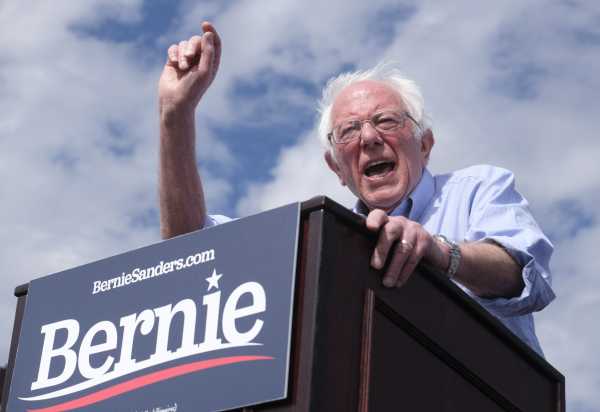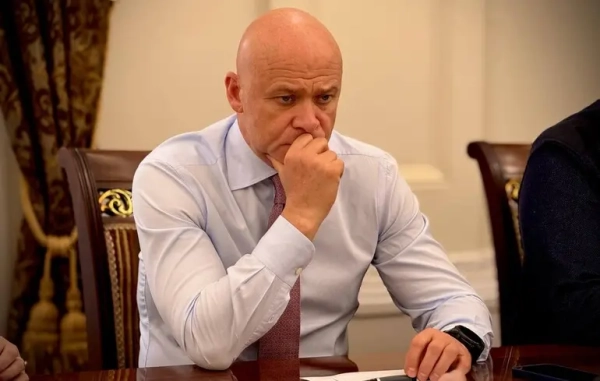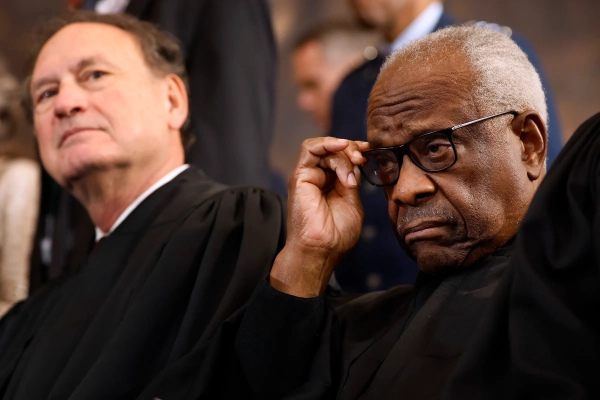
Officials told Sen. Bernie Sanders, President Donald Trump, and other lawmakers last month that Russia has attempted to aid Sanders’ election campaign, according to reporting Friday from the Washington Post.
The news emerged a day after the New York Times reported that intelligence officials have determined that Russia has also been working to support Trump’s reelection campaign, information that allegedly angered the president. The exact nature of the interference in both cases has not yet been reported.
Coming as it does in the midst of a heated primary campaign — and one in which Sanders is the current national frontrunner — the news could add uncertainty to what has been an already messy election cycle.
Speaking to reporters shortly after the report came out, Sanders, who previously has condemned Russian meddling meant to benefit his 2016 primary campaign against Hillary Clinton, confirmed that he had been briefed and again condemned foreign interference.
“The American people, whether you’re Republican, Democrats, independents, are sick and tired of seeing Russia and other countries interfering in our election,” he told reporters.
When asked why he thought the news was just emerging now, Sanders suggested it was an attempt to undermine his chances in the Nevada caucuses, which begin Saturday afternoon, and took an antagonistic stance — as he has before — toward the Post, which broke the story.
“I’ll let you guess about one day before the Nevada caucuses,” he said. “The Washington Post? Good friends.”
Trump responded to similar reports about Russia meddling on his own behalf by calling the reports “disinformation.”
“I see these phonies, the Do-Nothing Democrats — they said today that Putin wants to be sure that Trump gets elected. Here we go again,” he said at a campaign rally in Las Vegas on Friday. “Aren’t people bored?”
And late Friday night, Trump used the reports of pro-Sanders meddling to promote — without offering any evidence — a conspiracy theory that claimed Sanders has found himself in the middle of a Democratic Party orchestrated “hoax,” using the same word that he has used repeatedly to denounce the investigations into his 2016 electoral victory.
“It’s all rigged, again, against Crazy Bernie Sanders!” he wrote.
Sanders has stated in the past that he believes Russian actors interfered with his 2016 campaign. In February of 2018, shortly after Robert Mueller indicted Russian citizens and companies for election interference, Sanders wrote on Twitter that the Russian government “tried to turn my supporters against Hillary Clinton in the primary and general election.”
“I unequivocally condemn such interference,” he added.
Recently, he has suggested that foreign actors might be responsible for online hostility linked to some of his supporters, although it is not yet clear whether this suggestion was based on information the senator received during last month’s briefing.
“All of us remember 2016, and what we remember is efforts by Russians and others to try to interfere in our elections and divide us up,” he said during Wednesday night’s debate in Las Vegas, before the Post story came out. “I’m not saying that’s happening, but it would not shock me.”
Interference for Democrats benefits President Trump
After years-long investigations into foreign interference into Trump’s 2016 campaign, news of Russian meddling is concerning because it muddies the waters and could leave voters unsure of whom to trust.
Interference would also give anyone fertile ground to contest the outcome of American elections in general. As a whole, it undermines trust in the entire election process at a time when institutional trust has been weakened. And as Axios noted in a story last month, “the public’s confidence is so low in key people and institutions that no one is likely to be a trusted referee” on the outcome of a contested 2020 election.
More immediately, the reports could cause trouble for Sanders. Just ahead of the Nevada caucuses, 10 days from South Carolina, and less than two weeks from Super Tuesday — when voters in 14 states will head to the polls — candidates are seeking to distinguish themselves, but also to grasp the more subjective mantel of electability. Even as he condemns foreign interference, the report about Sanders could cause some Democratic voters, engaged in the three-dimensional chess game of trying to guess who their fellow voters might prefer before they cast their own vote, to see the senator as vulnerable, and therefore less electable, weakening his base of support.
And weakening the candidacy of the Democratic frontrunner could be part of Russia’s endgame. US intelligence agencies stated definitively that Putin had “a clear preference for President-elect Trump” in 2016, and a 2019 report by the Republican-led Senate Intelligence Committee concluded the same thing.
Sanders’ response to the most recent reports of meddling was tellingly different from Trump’s. Although he, like Trump, blamed the media for elevating the news, he also quickly denounced all foreign interference.
“I don’t care, frankly, who Putin wants to be president,” Sanders said in a statement to The Washington Post. “My message to Putin is clear: stay out of American elections, and as president I will make sure that you do.”
Trump, on the other hand, berated his intelligence director about the briefing before firing him — a move that Vox’s Alex Ward reports was “absolutely” related to the briefing.
A spokesperson for the Trump campaign wrote on Twitter that the campaign “condemn[s] and reject[s] foreign interference in American elections in any form.”
Sourse: vox.com






